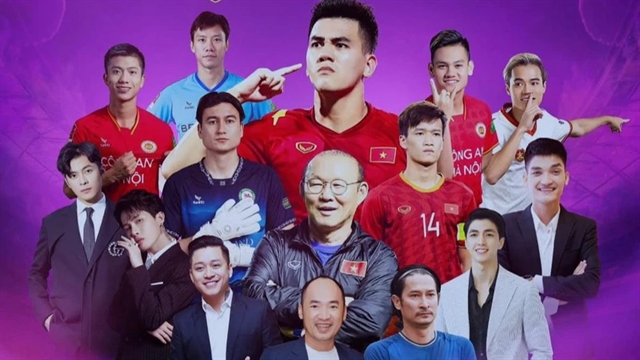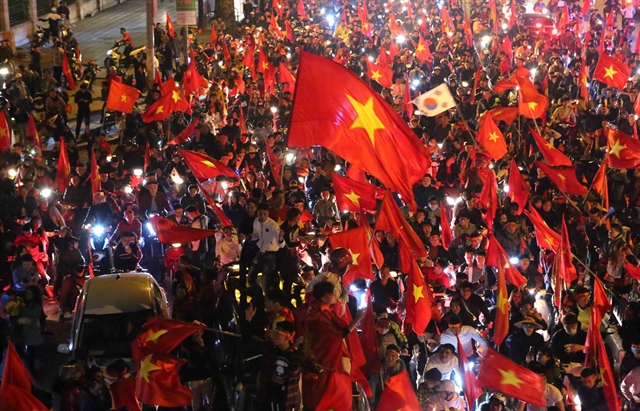 Sports
Sports

 |
| Fans in Hà Nội celebrating Việt Nam's AFF Championship win in 2018 after ten years. VNA/VNS Photo Thành Đạt |
Anh Đức
As a follower of both Việt Nam and England's footballing journey, though comparing the world number one and the world's number 116 is a bit of a stretch in terms of strength, there are clear similarities which I see in the culture and stories of Việt Nam and English national teams.
The Three Lions, had perhaps their peak in 1966 when they won the World Cup on home soil, around a decade after they became a FIFA member, with a golden generation. After that came 58 'years of hurt' without trophies and heartbreaking eliminations.
The Golden Star Warriors finally found local success in 2008 after around a decade of returning to international football, as they won the 2008 AFF Championship on home soil. After that perceived 'peak', ten years came by with disappointment after disappointment.
England had seventeen coaches since Sir Alf Ramsey brought home the Jules Rimet Trophy in Wembley, but none were successful and the furthest they progressed in an international tournament was the semifinals.
Việt Nam had eight coaches since Henrique Calisto led the men in red to Southeast Asian glory and the furthest they made it for ten years was also into the semifinals, of both the AFF Championship and the SEA Games for the under-23s level.
The footballing media of both countries also have the preference of propelling the players up to great heights and throwing them to the ground whenever the results did not go their way.
If the English media was notorious for calling David Beckham 'one stupid boy' after his red card against Argentina in 1998, Vietnamese media ran headlines about 'possible match-fixing by the players' after their 2-4 loss at home to Malaysia in 2014.
Both national teams were not at all united, despite generations of players with great potential. Both also had a 'generational player' that never made it due to misadventure, for England it was Paul Gascoigne and for Việt Nam it was Phạm Văn Quyến.
And for both teams, the two men came from out of nowhere, without a great football resume, but changed everything for the teams. They united a divided squad and brought them together for a common goal and revitalised the feelings of pride and hope in football for both countries.
For Việt Nam, it was Park Hang-seo, and for England, that man was Gareth Southgate.
Both of these men were at times criticised externally for their tactics and player selection and were perceived as being too defensive and too old school. But internally, these coaches were always defended and loved by their players.
The task was heavy for both men to suffice the expectation of a population where football is revered as a national identity. Should the match on Sunday have a positive outcome for England, those who had been in Hà Nội during their cup wins in 2018-2022 can expect an atmosphere of perhaps ten times that level in London.
This article was written half a day before the final in Berlin and as a fan I hope that the Three Lions can replicate what happened with the Golden Star Warriors. It was heartbreak when Park Hang-seo lost his first final, but he won his second one convincingly.
So there are similarities and both could learn from each other in the case of football. I for one hope for a future friendly between both of my favourite national teams.
VNS




